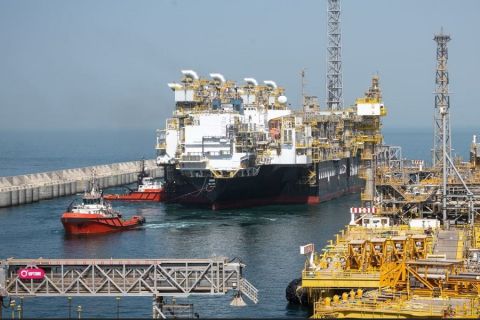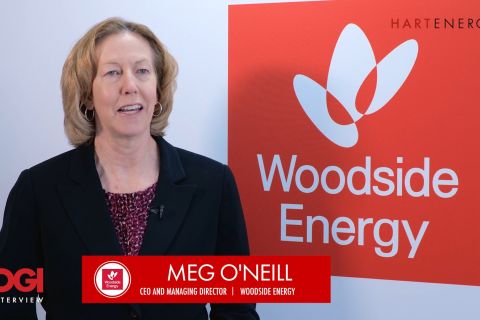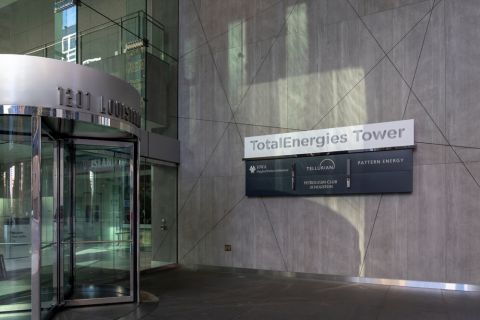Presented by:
[Editor's note: A version of this story appears in the April 2021 issue of Oil and Gas Investor magazine. Subscribe to the magazine here.]
On July 7, 1967, one of the oddest pairings in the history of television was recorded—stranger than Nixon on “Laugh-In” and more baffling than Bob Dylan’s appearance on the sitcom, “Dharma & Greg.”
As The Doors’ “Light my Fire” hit No. 1 on the charts, the venerable conservative television program, “Firing Line,” hosted by William F. Buckley Jr., sat down with the famously acerbic Groucho Marx, cigar smoke and all.
Watching it on YouTube is like viewing an alternative history’s timeline. Surely this cannot be real? Buckley’s questions, as always, seemed to slide out of the side of his mouth. Groucho returned fire like a gunner burdened with too much ammo, somewhat off target.
“I’m completely ill at ease,” Groucho said at one point, to laughter. At another, Buckley, trying to pin down the comedian, noted that Groucho had (again) contradicted himself.
“Why does a man have to stick to one thing because he said it once?” Groucho demanded.
This seems like a fairly human thing to say, especially for a guy trying to get laughs. Things change. People change, and so do industries. That change can haunt us.
Far fewer public companies now inhabit the oil and gas space than this time last year. Stock-for-stock mergers have had a hot hand lately. But capital seems again to be playing, funding acquisitions that in 2020 simply couldn’t get done.
On Jan. 31, Surge Energy U.S. Holdings Co. agreed to purchase Midland Basin operator Grenadier Energy Partners II LLC for $420 million—a significant amount of cash. Grenadier holds about 8,010 net acres in Howard County, Texas.
In another cash deal, Continental Resources Inc. said in February that it purchased the Powder River Basin acreage held by Samson Resources II LLC. The deal adds 130,000 net acres of oil- and condensate-rich acreage to the company’s Oklahoma and North Dakota positions. Continental agreed to pay $215 million for the acreage.
Equinor, on the sale-side, agreed to part with its Bakken assets in North Dakota and Montana, selling them to Grayson Mill Energy, backed by EnCap Investments LP, for about $900 million.
Cimarex has been shopping (and may have sold) a small Midcontinent package. Ovintiv’s sale of its Eagle Ford Shale assets is likely to end up an all cash or largely cash transaction. Reuters recently reported the deal would come in at $800 million. Even Diamondback Energy Inc.’s $2.2 billion acquisition of Guidon Energy last year was a mix of stock and cash. (Editor’s note: Ovintiv announced the agreement on March 24 to sell its Eagle Ford asset to Validus Energy for $880 million.)
J.P. Hanson, managing director and head of the oil and gas group at Houlihan Lokey, said that traditional A&D transactions “are coming back.”
“That’s really propelled by a return of interest by capital in the industry,” he said. “I think you’ll continued to see that ramp.”
But there’s room for both mergers and straight cash acquisitions, he said. “There are … traditional corporate stock M&A deals that will continue to happen.”
Mergers may become more infrequent, however, as commodity prices begin to climb and especially stabilize at a healthy price.
“The trajectory of M&A, you might see tail off a little bit. Because parties may start saying, ‘I wanted the take back stock … so that I could ride that upside. How much more upside is left?’”
Deal participants may instead prefer to crystallize their returns by taking “cash off the table.”
Hanson said that, arguably, the deal market is the most robust he’s seen for mergers, acquisitions and divestitures since the late 2000s.
During the stock market crash of 1929, the precursor of the Great Depression, Groucho lost $240,000 (about $4 million today). He was wiped out financially and was so depressed he couldn’t perform.
Groucho’s biographers tell of a man who later obsessed over lights left burning in empty rooms of his Beverly Hills mansion because of the electricity bill.
But, as Groucho told Buckley during his 1967 interview, to forget things is “one of the most important contributions you can make to your existence.”
He found his way out of financial ruin by trading jokes instead of stock. “I would have lost more,” he once joked, “but that was all the money I had.”
If dealmakers can get over the past year, with its misery as treacherous and deep as a river of mud, they may find a promising market in the months ahead.
“The secret of life is honesty and fair dealing,” begins a quote attributed, perhaps fittingly, to several comedians including Groucho. “If you can fake that, you’ve got it made.”
Recommended Reading
Technip Energies Wins Marsa LNG Contract
2024-04-22 - Technip Energies contract, which will will cover the EPC of a natural gas liquefaction train for TotalEnergies, is valued between $532 million and $1.1 billion.
Tech Trends: Halliburton’s Carbon Capturing Cement Solution
2024-02-20 - Halliburton’s new CorrosaLock cement solution provides chemical resistance to CO2 and minimizes the impact of cyclic loading on the cement barrier.
BP: Gimi FLNG Vessel Arrival Marks GTA Project Milestone
2024-02-15 - The BP-operated Greater Tortue Ahmeyim project on the Mauritania and Senegal maritime border is expected to produce 2.3 million tonnes per annum during it’s initial phase.
The OGInterview: How do Woodside's Growth Projects Fit into its Portfolio?
2024-04-01 - Woodside Energy CEO Meg O'Neill discusses the company's current growth projects across the globe and the impact they will have on the company's future with Hart Energy's Pietro Pitts.
TotalEnergies Acquires Eagle Ford Interest, Ups Texas NatGas Production
2024-04-08 - TotalEnergies’ 20% interest in the Eagle Ford’s Dorado Field will increase its natural gas production in Texas by 50 MMcf/d in 2024.







